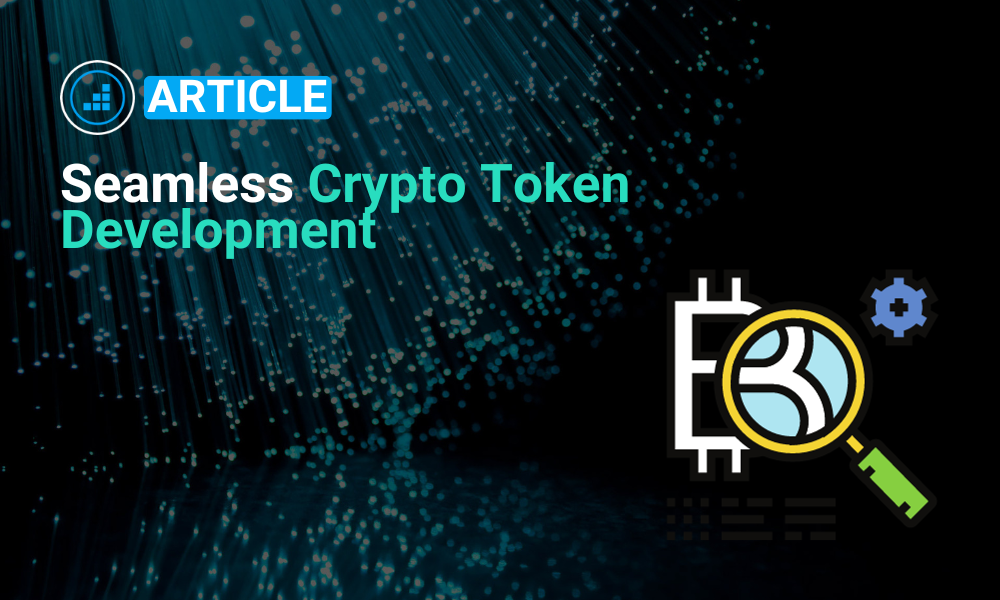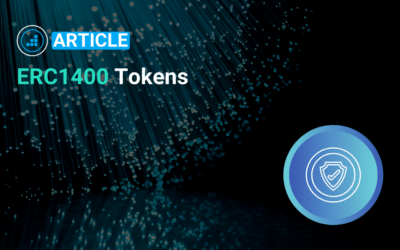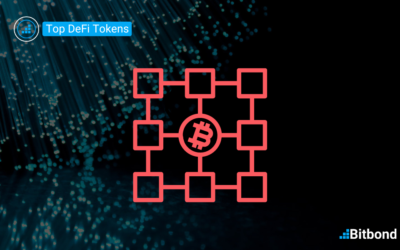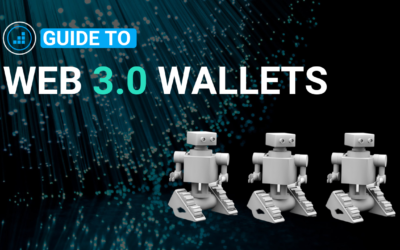Table of Contents
Unveiling the transformative landscape of crypto token development.
The advent of crypto token development has ushered in a new paradigm in asset digitization, creating ripples across the financial and technological landscapes. This transformative process paves the way for innovative applications and a more inclusive financial system. In this article, we’ll explore the intricacies of developing crypto tokens and briefly touch upon how platforms like Bitbond’s Token Tool can support this venture.
The Fundamentals of Crypto Token Development:
Crypto token development extends beyond the creation of digital currencies. It encapsulates the essence of asset representation on a blockchain, granting uniqueness and value to each token. This process is both an art and a science, requiring a harmonious blend of technological prowess, economic savvy, and visionary foresight. Developers are not just coding; they are architects of digital economies, designing tokens that can revolutionize industries, empower communities, and even support environmental sustainability. It’s a multidisciplinary endeavor that demands an understanding of complex systems, user psychology, and market dynamics to create tokens that are not only viable but valuable in the long-term digital ecosystem.
Security and Smart Contracts:
A cornerstone of any crypto token is its underlying smart contract – the set of rules encoded on a blockchain that governs the token’s behavior. Ensuring these contracts are free from vulnerabilities is critical, as they cannot be altered once deployed. Developers often conduct comprehensive audits to secure these contracts, a practice that is critical to maintaining the integrity of the tokens. Security remains a paramount concern in smart contract development, with infamous breaches serving as cautionary tales. The DAO attack in 2016, one of the most significant to date, resulted from a recursive call bug, leading to the theft of $60 million in Ether and the eventual split of Ethereum into two blockchains. The 2017 Parity Wallet incident saw $280 million of user funds frozen due to a deletion of a code library essential for wallet operations, highlighting vulnerabilities in smart contract dependencies. These examples showcase the importance of rigorous testing and security audits to prevent vulnerabilities that could be exploited by bad actors.
Diversity of Token Types:
The landscape of crypto tokens is rich and varied, with each type designed to fulfill specific roles within the digital economy:
- Security Tokens: Often likened to digital shares, these tokens represent investment contracts and ownership in external, revenue-generating assets.
- Utility Tokens: These tokens act as keys within their respective platforms, granting access to services or functions, like voting rights or fee waivers.
- Equity Tokens: Similar to traditional stocks, equity tokens confer ownership stakes in a company, including dividends and voting rights.
- Asset-Backed Tokens: They are pegged to real-world commodities like gold or real estate, offering a bridge between physical assets and their digital representations, which can enhance liquidity and fractionalize ownership.
Understanding the distinct features and applications of these tokens is essential for anyone looking to engage with the flourishing field of tokenization.

Token Development Challenges:
Embarking on token development is both thrilling and complex. It demands a solid grasp of blockchain technology and a commitment to follow industry best practices. Developers must navigate technical intricacies, ensure regulatory compliance, and manage the economic implications of their tokens.
Moreover, understanding the economic models that underpin token utility and demand is crucial to ensure their long-term viability in an ever-competitive market.
Yet, with the advent of user-friendly platforms like Token Tool, these barriers are significantly reduced. Token Tool’s self-serve platform is designed to be accessible to anyone, regardless of their technical knowledge. It provides a streamlined process for token creation, allowing visionaries, entrepreneurs, and creators to launch their tokens without the need for in-depth programming skills. This democratization of access is a game-changer, opening the doors of tokenization to a broader audience and fostering innovation across industries.
Global Perspectives on Crypto Token Development:
Given the international nature of the digital asset market, developers must create tokens with a global perspective. Tokens transcend borders, enabling a seamless exchange of value across continents, cultures, and currencies. They represent a universal language of ownership and exchange, one that adapts to the regulatory nuances and economic realities of diverse markets. This universal adaptability not only democratizes investment opportunities but also provides a new era of global financial inclusion where anyone, anywhere, can partake in economic activities previously out of reach.
However, one must not forget that compliance with varying international regulations and an understanding of the global blockchain ecosystem are essential for the successful deployment of tokens across markets.
Envisioning the Next Horizon in Smart Contract Evolution
Crypto token development is a dynamic field that continues to evolve and expand its influence. It holds the promise of more secure, transparent, and efficient asset management and ownership transfer. In recent years, smart contract innovation has taken significant strides, with developments such as Ethereum’s transition to a proof-of-stake consensus mechanism in its Ethereum 2.0 upgrade, which aims to enhance the network’s scalability and security. Additionally, the rise of decentralized finance (DeFi) has led to the creation of complex smart contract protocols that facilitate automated lending, borrowing, and trading without traditional intermediaries. These advancements, along with the introduction of layer 2 solutions like Optimism and Arbitrum, which aim to decrease fees and transaction times, continue to push the boundaries of what’s possible with smart contract technology, laying the groundwork for a more efficient and decentralized future.
Tokenization Simplified with Token Tool:
While platforms like Token Tool can streamline the process, a thorough understanding of blockchain technology and strategic planning remains crucial for success in this domain.
For those seeking to tokenize assets without deep technical expertise, Bitbond provides a comprehensive guide on their resources page, which outlines the tokenization process using their Token Tool. Our platform simplifies the complex aspects of token creation, allowing creators to focus on the strategic deployment of their assets.
Whether you’re a seasoned developer or a business looking to explore digital assets, the journey into crypto token development is ripe with opportunities. For a deeper understanding of tokenization and smart contract management, head over to our blog to learn more through Bitbond’s resources.




